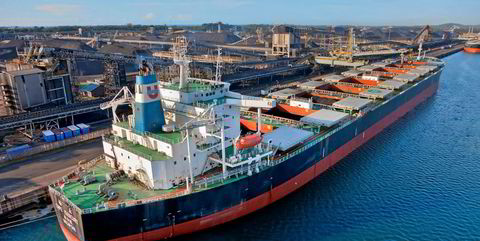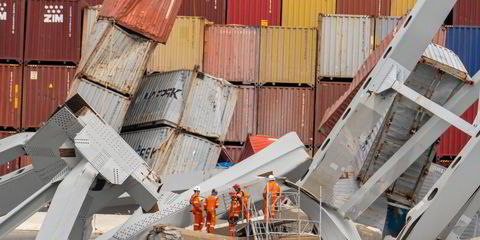Japan's NS United has added another ¥1.9bn ($18m) to its earnings forecast for the fiscal year as bulker profits exceeded expectations.
The company will now book net profit of ¥6.1bn for the financial year ended 31 March, up from its previous prediction of ¥4.2bn made on 29 January.
Earnings in the fiscal year ending 31 March 2020 were ¥5.9bn.
NS United said markets hit by Covid-19 at the start of the latest financial year had turned to "show recovery beyond our initial expectations of sea transportation demand".
The shipowner added that this has been supported by the recovery of the Chinese economy and a steady increase in grain transport.
"The significant improvement in business performance is expected due to the high level of the shipping market and depreciation of the yen more than initially expected," NS United said.
The company operates a fleet of 69 ships, mainly capesizes and VLOCs. It's fleet also includes three LNG carriers, a product tanker and two LPG carriers.
Operating profit should hit ¥6.7bn in the latest fiscal year, against the earlier forecast of ¥5.5bn. Revenue is now predicted to be ¥138.4bn, from ¥135bn in the prior estimate.
Dividends also rising
The dividend forecast has also been raised to ¥80 from ¥70 per share for the 12-month period.
On 22 April, TradeWinds reported that the dry bulk shipping sector had seen its ninth straight day of improvement, primarily due to China's relentless imports of iron ore for steel production.
"Iron ore prices and steel prices at a 10-year high are underlining the strong demand we are currently seeing in China," Clarksons Platou Securities wrote in its daily take on the dry bulk market.
Capesize bulker spot rates are playing a big part in dry bulk shipping's upward trend.
The capesize 5TC — a weighted average of spot rates on five key routes — has gained 18% since 20 April to reach $33,808 per day last Thursday, according to the Baltic Exchange.
Charter ripped up
The profit revision comes despite NS United tearing up an expensive time-charter contract early at a hefty cost.
The Tokyo-listed company said it would pay a cancellation fee of $25m to redeliver an unnamed ship in April to an overseas owner.
The loss was to be booked in the fiscal year ending 31 March.
The owner said the charter for an unspecified ship was concluded during a previous rising market and was no longer competitive.






